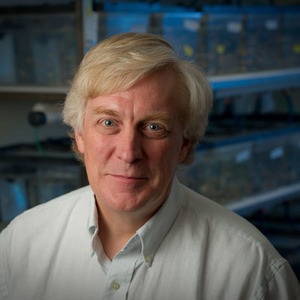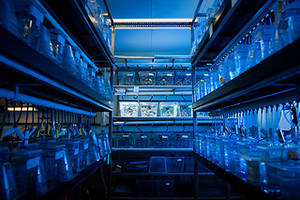Research

The Center for Stem Cells and Regenerative Medicine aims to enhance our advancement of research and scholarship, while staying committed to a deep-rooted Catholic identity. This center is an interdisciplinary enterprise, bringing together biologists, biomolecular engineers, lawyers, philosophers, and theologians to advance the research and application of adult stem cells and induced pluripotent stem (iPS) cells in a wide variety of organisms, while also stimulating the ethical and legal discussion associated with stem cells and their use.
Notre Dame has conducted cell regeneration research using adult or somatic stem cells for two decades. Most of this research utilizes zebrafish, which exhibit a spontaneous regeneration response to repair nearly all damaged tissues and organs. This research could identify potential approaches that use human adult stem cells to treat a variety of human diseases such as macular degeneration and other forms of blindness, neurological diseases, and kidney disease. More recently, we began investing in research that utilizes induced pluripotent stem (iPS) cells, an effective way to reprogram adult skin and other cell types into embryonic-like stem cells. These cells, sometimes collected from a person with an illness, have the potential to understand the progression of a disease and develop cures for a variety of diseases that range from diabetes to Parkinson’s to leukemia, without invoking many of the ethical concerns associated with human embryonic stem cells.

While stem cell research holds tremendous promise for discoveries that align with our mission of healing, the Center for Stem Cells and Regenerative Medicine pursues this rigorous scientific research within Notre Dame’s ethical and moral values and the Catholic Church’s respect for life. These views prohibit the use of human embryonic stem cell research on campus. These views also are an integral component of our ethical, moral, and legal discussions and research on the application and consequences of stem cell research on both the individual and society.
The dialogue between scientists, engineers, lawyers, philosophers, and theologians within the center will provide opportunities for holistic training across all areas that pertain to stem cells and human development for both undergraduate and graduate students so that they will become better informed leaders of society. The investment in this grand vision would not be possible without the support of the University and dedicated, generous friends who share our vision for cutting-edge research that elevates the well-being of the whole human community.